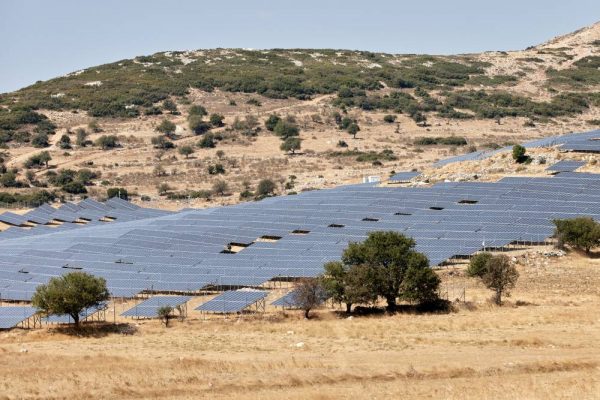
The price increases, especially in energy prices, caused three serious and interrelated effects on businesses, as pointed out in the Institute for Small Businesses Annual Report entitled “Crisis, Greek Economy and Small Businesses”, released on Wednesday.
The first impact was the significant increase in their operating costs. In particular, in the first half of 2022 energy costs increased on average by 76%, raw materials and goods supply costs by 43.5%, vehicle fuel costs by 57.8% and equipment and machinery supply costs by 26.2% .
The second impact was the historically high number of businesses that increased the selling prices of goods/services. Based on the economic climate surveys of the Institute, the number of companies that stated that they increased their prices are constantly rising, as from 6.6% that was in the 2nd half of 2020, they reached 23.6% in the 1st half of 2021, in 34 .8% in the 2nd half of 2021 and to 59.2% in the 1st half of 2022.
Liquidity problems
The third impact, related both to the increase in business operating costs and to the effects of the pandemic crisis, concerns the serious liquidity problems experienced by small and very small businesses. The liquidity problem of small and very small businesses is reflected by the increase in the already high percentages of businesses with zero or fairly low cash reserves.
The situation appears to have worsened significantly since the start of the pandemic, as businesses that in July 2022 declared that they had zero cash on hand accounted for 27.8% of all small and very small businesses. Especially for the very small ones, which make up the vast majority of businesses, the serious liquidity problems are more intense, as well as their ability to meet their obligations and escape from the vicious cycle of over-indebtedness.
Economic Climate Index
On the other hand, the Economic Climate Index of small and very small businesses strengthened further, both in the second half of 2021 and the first half of 2022. Specifically, it reached 52.4 and 54.3 points respectively, recording the first half of 2022 the highest performance since the outbreak of the health crisis, without however approaching the pre-pandemic level.
Employment also increased, while the percentage of businesses that made investments also increased. The full opening of the economy, the very good tourist season, the reduction of tax and other burdens and the measures to deal with high energy prices, are considered the main factors of these positive developments.
However, in relation to investments, it appears from the data that they were mainly adaptation or maintenance investments and less expansion or development. In other words, most of the investments were small-scale, since the amount of investment for more than 1 in 2 companies was up to €5,000, while the vast majority of companies (more than 8 in 10) financed the investment they made with equity capital.
Finally, with regard to the digital transformation of small and very small businesses, there is a lag in the integration of new technologies. It is characteristic that of the small and very small businesses that have integrated new technologies into their activity, only 17.4% adopted them during the pandemic.
Latest News

WTTC: Travel & Tourism to Create 4.5M New Jobs in EU by 2035
This year, international visitor spending is set to reach 573 billion euros, up by more than 11% year-on-year

IMF: US Tariffs Shake Global Economy, Outlook Downbeat
IMF slashes global growth forecast to 2.8% as U.S. tariffs create uncertainty and ‘negative supply shock

First Step Towards New Audiovisual Industry Hub in Drama
The project is set to contribute to the further development of Greece’s film industry and establish Drama as an audiovisual hub in the region

Airbnb Greece – Initial CoS Ruling Deems Tax Circular Unlawful
The case reached the Council of State following annulment applications filed by the Panhellenic Federation of Property Owners (POMIDA)

Mitsotakis Unveils €1 Billion Plan for Housing, Pensioners, Public investments
Greek Prime Minister Kyriakos Mitsotakis has announced a new set of economic support measures, worth 1 billion euros, aiming to provide financial relief to citizens.

Alter Ego Ventures Invests in Pioneering Gaming Company ‘Couch Heroes’
Alter Ego Ventures' participation in the share capital of Couch Heroes marks yet another investment by the Alter Ego Media Group in innovative companies with a focus on technology.

Corruption Still Plagues Greece’s Driving Tests
While traffic accidents continue to claim lives on Greek roads daily, irregularities and under-the-table dealings in the training and testing of new drivers remain disturbingly widespread

Pope Francis Died of Stroke and Heart Failure Vatican Confirms
As news of the official cause of death spread, tributes poured in from across the globe. The 1.4 billion-member Catholic Church is united in grief, remembering a pope who championed inclusion, justice, and compassion

Increase in Both Museum Visits, Revenues for 2024
As expected, the Acropolis was the top archeological site in the country, followed by Sounion, Mycenae, the ancient theater of Epidaurus, and Vergina in northern Greece

Where Greece’s Tourists Come From: A Look at 2025’s Top Visitor Markets
The United Kingdom continues to hold the top spot as the largest source of incoming tourism, with 5.6 million seats booked for Greece this summer — up 2.2% from last year. This accounts for 20% of all international air traffic to Greece

















![Ξενοδοχεία: Μεγάλο το ενδιαφέρον για επενδύσεις στην Ελλάδα – Η θέση της Αθήνας [γραφήματα]](https://www.ot.gr/wp-content/uploads/2025/03/Athens-hotels-90x90.jpg)













![Ελάχιστο ετήσιο εισόδημα αυτοαπασχολούμενων [Β’ Μέρος]](https://www.ot.gr/wp-content/uploads/2025/02/taxpayers-600x337.jpg)









 Αριθμός Πιστοποίησης
Αριθμός Πιστοποίησης